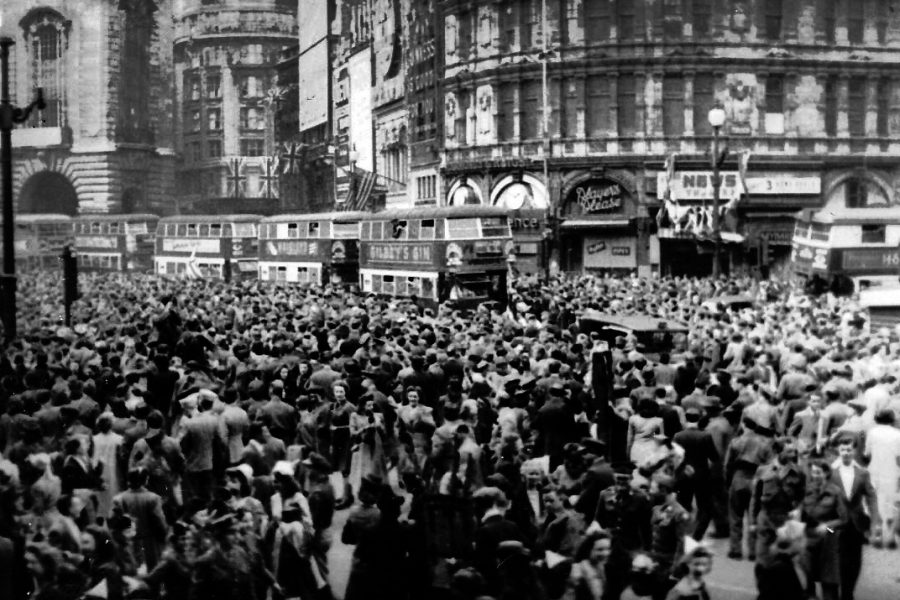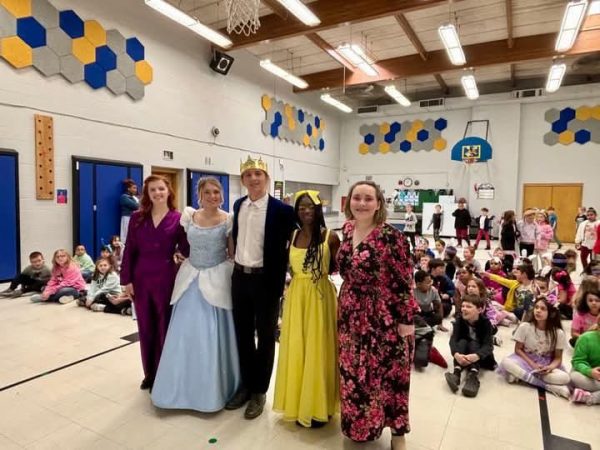Allies vanquished Nazi Germany 75 years ago
IMAGE / Wikimedia Commons / Sgt. James A. Spence
British citizens celebrate Victory over Europe in London’s Piccadilly Circus May 8, 1945. Friday marks the 75th anniversary of the Nazi surrender.
Friday, May 8, marks the 75th anniversary of Victory in Europe Day, the day the Allies accepted Nazi Germany’s unconditional surrender in World War II.
Alumnus Dylan McIntire feels VE Day should be remembered as the end of one of history’s worst wars.
“I truly think VE Day was a terrible day that should have come much sooner.” McIntire said. “The only thing they had to celebrate was the fact that the Allies had stopped the Nazi regime from harming more people.
“Leading to the success, much of the world and many soldiers became part of the dirt they battled on. I think much of the world could have been more vigilant as to what the Nazis had planned.”
After Soviet forces swarmed Berlin in late April 1945 and Adolf Hitler committed suicide April 30, the Nazi regime was left in shambles.
Reichspräsident Karl Dönitz and the Flensburg government negotiated a military surrender at the Supreme Headquarters Allied Expeditionary Force in Reims in the early morning of May 7, 1945. The surrender was signed by Nazi General Alfred Jodl.
However, a modified document, the German Instrument of Surrender, served as the authoritative document. It was signed in Berlin in the early morning of May 9, 1945, due to quarrels over who should sign the document and what it should include.
The surrender was backdated to keep in-line with announcements and orders that said it was signed May 8, at 9:20 p.m.
The surrender marked the end of Nazi Germany, although the Flensburg government continued to operate until the arrest of its members May 23, 1945.
While celebrations filled the streets of Western Europe and the United States, President Harry S. Truman and British Prime Minister Winston Churchill warned that only half of the war had been won.
The Pacific theater would not end until August 15, 1945 — Victory over Japan Day — which was caused by the dropping of Little Boy on Hiroshima and Fat Man on Nagasaki.
World War II saw the death of around 75 million people, most of whom were killed as a result of genocides, starvation, and collateral damage.

Class: Senior
Hobbies: I participate in quiz bowl, chess, robotics, Future Problem Solving, and many other "nerd sports."
Future Plans: I plan to...





